Iran, Israel, and the United States
Iran, Israel, and the United States
The Politics of Counter-Proliferation Intelligence
Ofira Seliktar and Farhad Rezaei
LEXINGTON BOOKS
Lanham Boulder New York London
Published by Lexington Books
An imprint of The Rowman & Littlefield Publishing Group, Inc.
4501 Forbes Boulevard, Suite 200, Lanham, Maryland 20706
www.rowman.com
Unit A, Whitacre Mews, 26-34 Stannary Street, London SE11 4AB
Copyright 2018 by The Rowman & Littlefield Publishing Group, Inc.
All rights reserved . No part of this book may be reproduced in any form or by any electronic or mechanical means, including information storage and retrieval systems, without written permission from the publisher, except by a reviewer who may quote passages in a review.
British Library Cataloguing in Publication Information Available
Library of Congress Cataloging-in-Publication Data
Names: Seliktar, Ofira, author. | Rezaei, Farhad, author.
Title: Iran, Israel, and the United states : the politics of counter-proliferation intelligence / Ofira Seliktar and Farhad Rezaei.
Description: Lanham, Maryland : Lexington Books, 2018. | Includes bibliographical references and index.
Identifiers: LCCN 2018016861 (print) | LCCN 2018023017 (ebook) | ISBN 9781498569767 (electronic) | ISBN 9781498569750 (cloth : alk. paper)
Subjects: LCSH: Nuclear weaponsIran. | Nuclear weapons information. | Intelligence serviceIsrael. | Intelligence serviceUnited States. | Nuclear nonproliferation. | United StatesForeign relationsIsrael. | IsraelForeign relationsUnited States. | United StatesForeign relationsIran. | IranForeign relationsUnited States.
Classification: LCC U264.5.I7 (ebook) | LCC U264.5.I7 R49 2018 (print) | DDC 327.1/7470955dc23
LC record available at https://lccn.loc.gov/2018016861
 The paper used in this publication meets the minimum requirements of American National Standard for Information SciencesPermanence of Paper for Printed Library Materials, ANSI/NISO Z39.48-1992.
The paper used in this publication meets the minimum requirements of American National Standard for Information SciencesPermanence of Paper for Printed Library Materials, ANSI/NISO Z39.48-1992.
Printed in the United States of America
Contents
ABC | Atieh Bahar Consulting |
ACDA | Arms Control and Disarmament Agency |
ACH | Analysis of Competing Hypotheses |
ADM | Archer Daniels Midland |
AEOI | Atomic Energy Organization of Iran |
AIC | American Iranian Council |
AIPAC | American Israel Public Affairs Committee |
AMAD | Sazman-e Tarahi-e Tajhizat-e Vizheh |
APA | Acquisition Path Analysis |
BOG | Board of Governors |
CAP | Center for American Progress |
CDI | Coalition for Democracy in Iran |
CIA | Central Intelligence Agency |
CIC | Counter-Intelligence Center |
CNAPI | Campaign for a New American Policy on Iran |
CNEA | Commission Nuclear Energy Argentina |
CPC | Counter-Proliferation Center |
CPD | Committee on Present Danger |
CPI | Counter-Proliferation Initiative |
CSP | Center for Security Policy |
CUFI | Christians United for Israel |
DCAP | Deterrence Concept Advisory Panel |
DIQ | Design Information Questionnaire |
DPPC | Damavand Plasma Physics Center |
DPPRC | Damavand Plasma Physics Research Centre |
ENACE | Empresa Nuclear Argentina de Centrales Electricas |
ERI | Education Research Institute |
EXPO | External Relations and Policy Coordination |
FBI | Federal Bureau of Investigation |
FDD | Foundation for the Defense of Democracies |
FEDAT | Field of Expansion of Deployment of Advanced Technology |
FEP | Fuel Enrichment Plant |
HEU | Highly Enriched Uranium |
HUMINT | Human Intelligence |
IAEA | International Atomic Energy Agency |
IAEC | Israel Atomic Energy Commission |
IDC | Interdisciplinary Center |
ILSA | Iran Libya Sanctions Act |
INR | Intelligence and Research |
INSSA | Institute for National Security Studies |
INTC | Isfahan Nuclear Technology Center |
IPC | Iran Policy Committee |
ISI | Inter-Service Intelligence |
ISIS | Institute for Science and International Security |
ITDB | Incident and Trafficking Database |
IVO | International Verification Organizations |
JCPA | Jerusalem Center for Public Affairs |
JCPOA | Joint Comprehensive Plan of Action |
JMCNS | James Martin Center for Non-Proliferation Studies |
JPA | Joint Plan of Action |
JTGS | Joint Tactical Ground Station |
LEU | Low Enriched Uranium |
MAD | Mutual Assured Destruction |
MAI | Moscow Aviation Institute |
MEK | Mujahedeen-E-Khalq |
MIT | Massachusetts Institute of Technology |
MODAFL | Defense Armed Forces Logistics |
MSSP | Member State Support Programs |
MTCR | Missile Technology Control Regime |
NCPC | National Counterproliferation Center |
NCRI | National Council of Resistance of Iran |
NCS | National Security Council |
NCS | National Clandestine Service |
NIA | National Intelligence Agencies |
NIAC | National Iranian-American Council |
NIE | National Intelligence Estimate |
NIPP | National Institute for Public Policy |
NNSA | National Assessment Group of the National Nuclear Security Administration |
NPEC | Nonproliferation Policy Education Center |
NPT | Non-Proliferation Treaty |
NRO | National Reconnaissance Office |
NSA | National Security Agency |
NSG | Nuclear Suppliers Group |
|

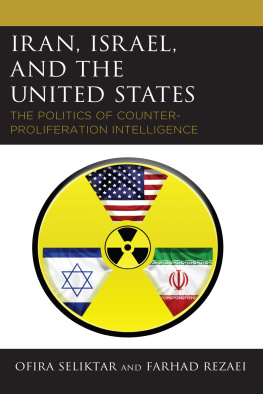
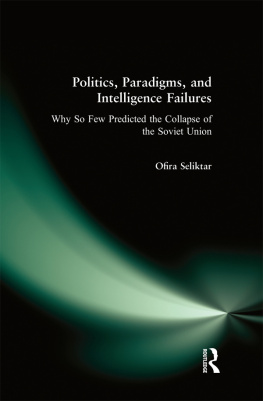

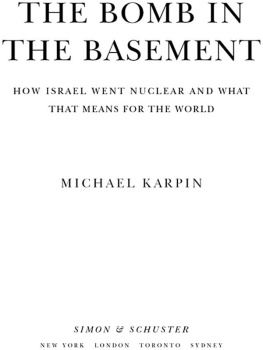
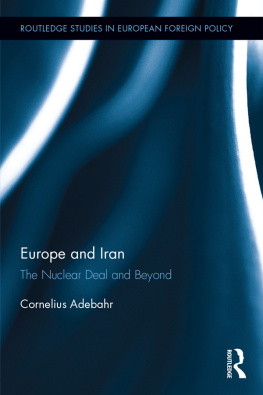
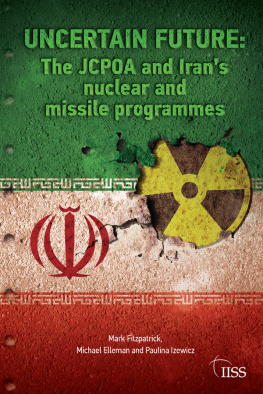
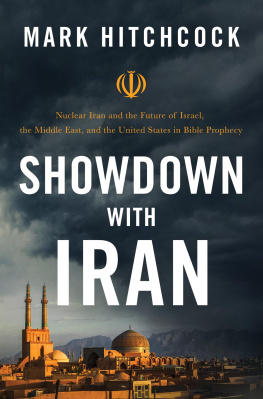
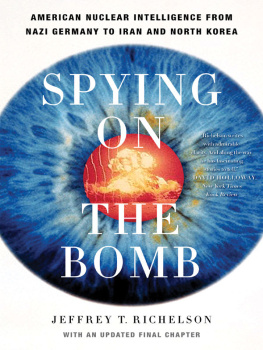
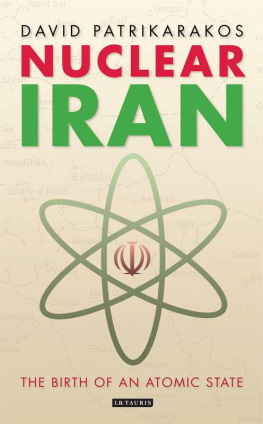

 The paper used in this publication meets the minimum requirements of American National Standard for Information SciencesPermanence of Paper for Printed Library Materials, ANSI/NISO Z39.48-1992.
The paper used in this publication meets the minimum requirements of American National Standard for Information SciencesPermanence of Paper for Printed Library Materials, ANSI/NISO Z39.48-1992.